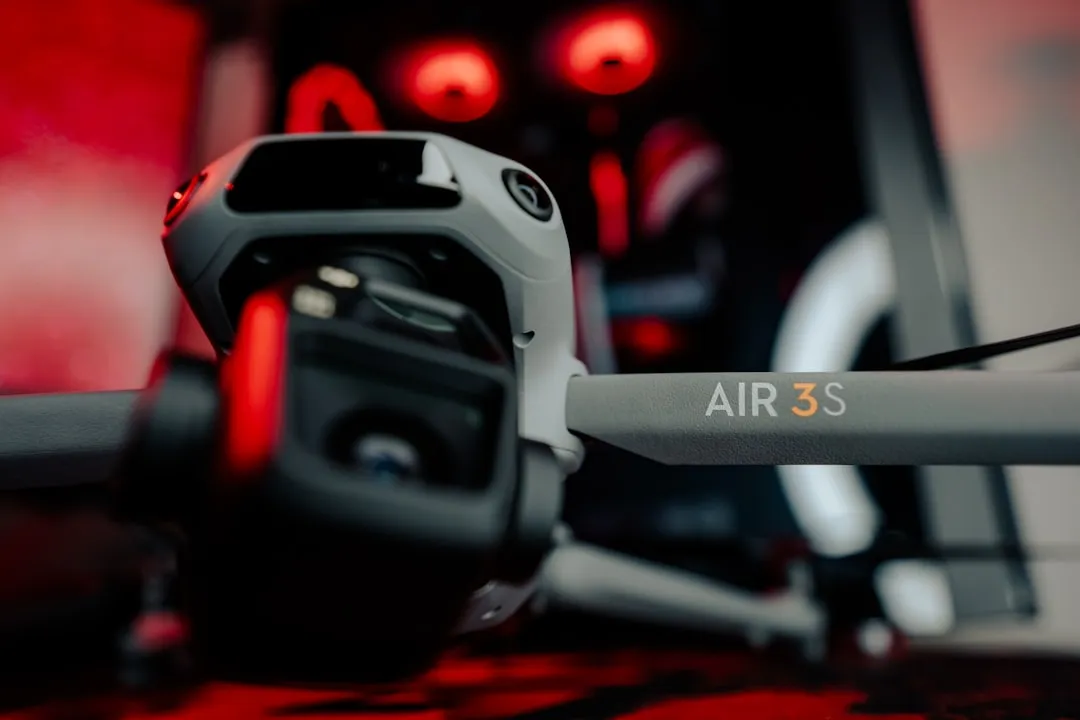How to Protect Your Quest Headset From Facebook Account Troubles
Your Quest headset is an expensive piece of tech that can suddenly become a paperweight if your linked Facebook account runs into trouble. While Meta has made strides in improving account security and offering alternatives, numerous Quest users continue to face access issues when their social media accounts get flagged or restricted. The good news? You're not powerless here. Meta now provides several protective measures and account options that can shield your VR investment from social media mishaps. Understanding these safeguards—and implementing them correctly—could save you from months of frustration and potential hardware lockouts.
Why Facebook account linking creates such a vulnerability
The root of this problem traces back to Meta's integration strategy that began years ago. Facebook acquired Oculus in 2014, and by 2018, Oculus became a full division of Facebook. The real complications started in 2020 when Facebook mandated that all Quest users must have a Facebook login to access their hardware and the Oculus web portal. This created a single point of failure where social media violations could instantly block VR access.
Here's where it gets particularly problematic: if your account violates Meta's Code of Conduct for Virtual Experiences, Supplemental Meta Platforms Terms of Service, or Meta Terms of Service, it may face disabling or restrictions. What amplifies this risk is that Meta sometimes restricts accounts without issuing prior warnings, meaning you could lose access to your hardware investment without any indication that a violation was even detected.
The scope of potential violations extends far beyond obvious infractions. Automated content moderation systems can flag posts, comments, or even friend connections as problematic, triggering account restrictions that ripple into your VR experience. A disputed photo, a misinterpreted joke, or even associating with flagged accounts could suddenly transform your entertainment hub into an expensive door stop.
The situation became so concerning that many users created throwaway Facebook accounts specifically for Quest hardware, despite the risks of account bans and purchase losses. This workaround highlighted how the mandatory linking created an untenable situation where users were essentially forced to choose between authentic social media engagement and VR security.
Understanding Meta's current account protection systems
Meta has responded to user concerns with several important changes that fundamentally alter the risk landscape. As of August 2022, users can now unlink their Facebook account from Quest hardware and use a separate Meta account instead. This development came after the German Bundeskartellamt raised competition concerns, leading Meta to offer Quest users the option to create separate Meta accounts.
The Meta account system provides crucial data separation benefits that address both security and privacy concerns. Meta commits to keeping data from users with separate Meta accounts generated during Quest use separate from data gathered from other Meta services, with certain exceptions. This separation means your VR activities won't automatically feed into your social media advertising profile, content algorithms, or potentially problematic cross-platform behavior analysis that could trigger account restrictions.
For newer devices, Meta has implemented additional transparency features that help users understand and control their data exposure. Beginning with Quest 3S, a privacy indicator alerts users when certain privacy-related features are active. This real-time awareness helps users make informed decisions about when and how their data is being processed.
The company has also introduced Permissions History, which allows users to review which installed apps accessed microphone, location, spatial data, eye tracking, Natural Facial Expressions, and storage data over the past seven days. This detailed tracking enables you to identify apps that might be overreaching in their data collection—information that becomes crucial when minimizing potential policy violation vectors across your digital ecosystem.
PRO TIP: The regulatory pressure from German authorities didn't just benefit German users—these changes apply globally, creating a protective framework that exists because of sustained regulatory oversight rather than voluntary corporate goodwill.
Step-by-step protection: migrating to a Meta account
The migration process is more straightforward than you might expect, but timing and preparation matter for optimal security. Meta started rolling out Meta accounts with a relatively simple switching process for Quest devices already configured with Facebook accounts. Here's how to execute the transition while maximizing your protection.
Start by creating your Meta account through the official setup process, using an email address that's completely separate from your Facebook account. This email separation is crucial—using the same email maintains potential connection points that could compromise the isolation you're seeking to achieve. The system will guide you through account creation while ensuring you maintain access to your existing purchases and game library.
Once your Meta account is ready, connecting your Meta account to your headset is essentially a one-step process. Put on your headset and attempt any action that requires authentication. A prompt should appear with a connection code that bridges your device to the new account system.
Navigate to Meta.com/device on your computer or phone, then enter the code from your Quest to link your Meta account to your headset. This pairing process preserves your existing game library, achievements, and settings while severing the problematic dependency on your Facebook profile and its associated content policies.
Expect a brief disruption in mobile app access during this transition period. Switching to a Meta account may log you out of the Quest mobile app for iOS or Android. To regain access, select the "Log in with email" option and enter your Meta account credentials. Your mobile app will then sync with your newly independent VR setup.
The entire process typically takes less than 15 minutes, but the security benefits compound over time as your VR usage data remains isolated from social media activity that might trigger cross-platform policy reviews.
What to do if your account gets restricted anyway
Even with protective measures in place, account issues can still occur, making rapid response crucial for recovery. If you encounter problems, you'll see a notification message when attempting to log in to a disabled or restricted account. Understanding the distinction between different restriction types determines your available options and success likelihood.
First, distinguish between account restrictions and simple login problems through the notification system. If you don't see a notification about account disabling or restrictions, you may be experiencing a standard login issue. In these cases, you can reset your password or manage the email address associated with your account. Standard troubleshooting resolves these technical issues quickly without involving content policy reviews.
For actual account restrictions, timing becomes absolutely critical for any chance of recovery. After logging in, you can request Meta to review the decision if you believe your account was disabled or restricted by mistake. However, there's a firm deadline: if you don't appeal within the specified timeframe, you'll no longer be able to request an account review.
When submitting appeals, provide comprehensive details about why you believe the restriction was applied incorrectly. Include specific context about your account usage patterns, any recent activities that might have triggered automated systems, and clear explanations of how your behavior aligns with platform policies. Meta's review teams respond more favorably to detailed, factual appeals rather than emotional pleas.
Remember the limitations of the appeal process: Meta cannot restore accounts disabled for severe violations. This unchangeable reality reinforces why prevention through account separation remains your most reliable protection strategy.
Maximizing your headset's security going forward
Beyond account separation, Meta has introduced comprehensive privacy controls that enhance your protection against potential account complications. Quest 3S users benefit from simplified, more transparent, and easier-to-use Privacy Settings that maintain consistency across Meta Horizon OS. These improvements provide granular control over information sharing while reducing the attack surface for potential policy violations.
Pay strategic attention to your Active Status settings, which now offer three distinct options: Joinable, Online, and Appear offline. Controlling your visibility reduces exposure to problematic interactions with other users that might trigger content policy investigations or harassment reports that could escalate to account restrictions.
Consider your profile visibility as an additional security layer rather than just a privacy preference. If you set your profile to "Private," only your followers can see the apps you use and your achievements or high scores. This setting protects your VR usage patterns from scrutiny by users who might report activities they misunderstand or disapprove of, creating potential policy violation investigations.
For users seeking maximum isolation from Meta's broader ecosystem, Meta now allows Quest owners to launch PC VR games directly from the Horizon OS library. This development reduces dependence on external platforms while limiting the data touchpoints that could complicate your account status through cross-platform behavioral analysis.
The strategy here involves building multiple defensive layers rather than relying solely on account separation. Privacy settings, visibility controls, and usage pattern management create comprehensive protection against the various pathways that could lead to account complications.
Staying protected in an evolving landscape
The VR security landscape continues to evolve rapidly, with researchers identifying ongoing cybersecurity and privacy challenges in Extended Reality environments, including risks of data breaches, identity theft, and unauthorized profiling. While Meta addresses many concerns through technical solutions, your proactive approach to account management becomes increasingly important as platform integration deepens and AI-driven content analysis expands.
Meta's recent commitment to begin using interactions with Meta AI to improve ad targeting systems exemplifies why account separation remains crucial for long-term protection. This new integration between AI interactions and advertising algorithms represents exactly the type of cross-platform data correlation that separate Meta accounts are designed to prevent. As AI becomes more sophisticated at detecting patterns across user behavior, isolated VR accounts provide essential insulation from social media activities that might trigger automated policy enforcement.
The regulatory framework that enabled these protective options continues to evolve in user-favorable directions. Meta's introduction of separate Meta accounts represents a direct response to user concerns and regulatory pressure, demonstrating how sustained advocacy and regulatory oversight can force platform improvements that benefit users worldwide.
Looking ahead, expect continued expansion of AI-driven content moderation, cross-platform behavioral analysis, and automated policy enforcement. Each of these developments increases the potential for unintended account complications when your VR activities remain linked to broader social media ecosystems.
The key takeaway? Don't wait for problems to emerge. Take control of your VR security today by migrating to a separate Meta account, configuring your privacy settings strategically, and staying informed about policy changes that could affect your access. Your future self will thank you when you're still enjoying seamless Quest access while others struggle with account recovery headaches that could have been prevented with proactive protection.
























Comments
Be the first, drop a comment!